LATEST INSIGHTS
Your Present Location: LATEST INSIGHTS-
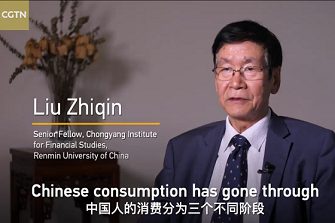
How a Latvian bath bomb tapped into China's beauty market
China is set to overtake the U.S. to become the world's largest beauty market this year, according to a Morgan Stanley research report. Companies around the world are trying to tap into the country's burgeoning demand for cosmetics and personal care products. In an industry dominated by big brand names, a much smaller enterprise from Latvia is forging ahead in China, focusing on the niche section of bath and shower products. Bath bombs in particular have been trendy among young people.
2019-11-01 -

Ding Gang: China’s growth inseparable from its system
In the article "Farm lessons from China" published on The India Express, Indian scholars Ashok Gulati and Sakshi Gupta suggest that India should pay attention to China's three lessons to improve agricultural production. First, China spends a lot more on agriculture knowledge and innovation system (AKIS), which includes agricultural R&D and extension. Second, the incentive structure as measured by producer support estimates (PSEs) is much better for Chinese farmers than Indian farmers. The third lesson pertains to direct income support schemes.
2019-10-31 -
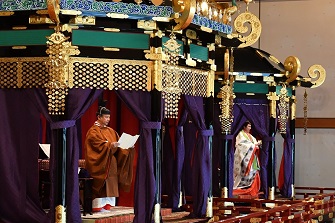
Zhang Jingwei: Romance of the Three Kingdoms, US, China and Japan
In the afternoon of October 22, the enthronement ceremony for Japan’s new Emperor Naruhito was held. Distinguished guests who witnessed the event included heads of states, royalties and high-ranking government officials from about 180 countries. Among them was Wang Qishan, President Xi Jinping’s special envoy and China’s Vice President. Attention was quickly drawn to a few noteworthy observations. Of the special envoys who attended the ceremony, Vice President Wang was of the highest level – i.e., a full state-level representative. In contrast, the US only sent a ministerial-level dignitary.
2019-10-30 -
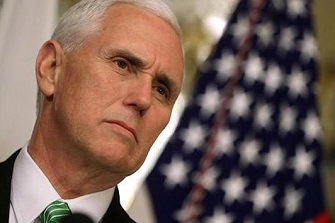
Pence renews hostile speech, shows 'arrogance, hypocrisy, bias and lies on China'
US Vice President Mike Pence delivered a hostile speech aimed at China during an event organized by the Washington-based think tank Wilson Center on Thursday, with Chinese analysts saying Pence and US President Donald Trump are playing the bad cop - good cop game before the highly anticipated China-US summit in November in a bid to gain leverage on trade talks. Still, the vice president's latest remarks included positive signals compared to last year's speech, which indicated a consensus between both countries is increasing, analysts said.
2019-10-30 -
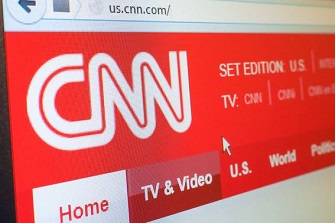
CNN’s reports on China show discrimination, a strong color of Cold War ideology
"Don't be too CNN-like!" reads an Internet catchphrase popular 11 years ago that recently resurfaced in China as Chinese netizens accused CNN of owing the 39 Essex lorry tragedy victims, as well as Chinese people, an apology, not to mention "so many historical bills the media bears responsibility for." Browsing through CNN's previous reports on China, readers can easily find that the media outlet expressing prejudicial discrimination against China's development, which some Chinese analysts said calls for a forceful response and it make take a long time for CNN to gradually change.
2019-10-30 -
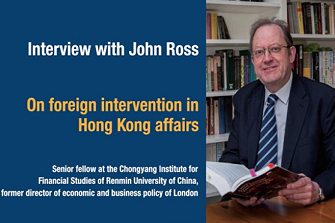
John Ross: Rioters' separatist agenda doomed to fail
Hong Kong is part of China and the rioters have "zero chance of success" of separating the city from its motherland, an economic policy expert has said. " (For) the people who lead these protests, their demands are not the ones that they put forward, and what they really want is the separation of Hong Kong from China," said John Ross, a senior fellow at the Chongyang Institute for Financial Studies at Renmin University of China, on Thursday.
2019-10-29 -
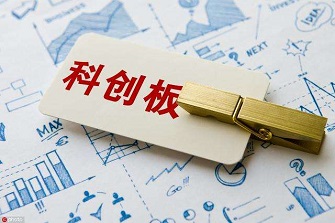
Sci-tech board wins plaudits at 100 days
With the STAR Market, the Shanghai Stock Exchange's sci-tech innovation board, set to mark its 100th day of trading on Tuesday, experts are lauding its role in China's national strategy of innovation-driven development via science and technology. The market, called the Chinese version of the NASDAQ, was designed to focus on companies in high-technology and strategic emerging sectors. It started trading with 25 listings and now has 36.
2019-10-29 -
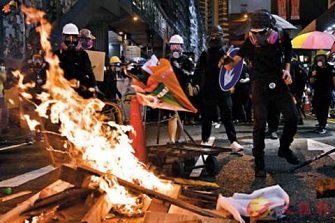
Wang Wen: Hong Kong should be wary of US interference
There is another thing I cannot understand. It has been 22 years since Hong Kong returned to the motherland. Why do so many youngsters still not recognize their motherland? Why don't they respect the rule of law and social order? Why do they prefer violence? As one of the most competitive cities in the world, Hong Kong's educational and social elites have to rethink these questions. However, just as the Chinese word weiji, literally crisis, is a combination of the words "danger" and "opportunity," the social crisis of Hong Kong in 2019 is also an opportunity for the city to seek change and take off again.
2019-10-29 -
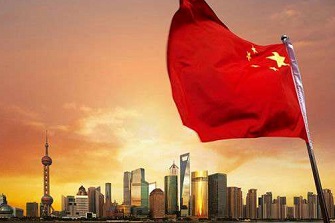
He Weiwen: Will China’s GDP Growth Slip Below 6%?
The latest official data shows that the Chinese economy slowed further in the third quarter this year, with its GDP growth rate of 6.0 percent, which is down from 6.2 percent in Q2 and 6.4 percent in Q1. The first three quarters combined had a rate of 6.2 percent, down from 6.3 percent in the first half of the year. The past seven quarters since Q1 2018 have seen uniform economic slowing, with the quarterly GDP growth rate of 6.8 percent in Q1 2018 dropping to 6.7, 6.5, 6.4, 6.4, 6.2 and 6.0 for each subsequent quarter, respectively. If this trend continues, Q4 2019 GDP growth seems poised to slip below 6.0 percent.
2019-10-28 -
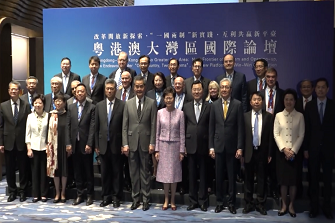
City needs reform strategy to overcome difficulties
Hong Kong needs its own reform strategy to address the city's deep-rooted social issues, to enhance economic competitiveness and strengthen its role in the Guangdong-Hong Kong-Macao Greater Bay Area, experts say. Hong Kong is a gateway to China and therefore it will have the advantage of being the contact with the Chinese mainland market, said Ross, who is also a senior fellow at the Chongyang Institute for Financial Studies at Renmin University of China.
2019-10-28 -
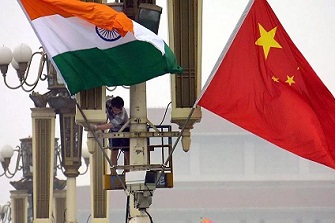
Lin Minwang: China and India, Looking Into the Future
Chinese President Xi Jinping and Indian Prime Minister Narendra Modi held their second informal meeting on October 11-12 in the southern Indian city of Chennai. During the meeting, Xi said China and India, as ancient civilizations with several thousand years of history, have carried on exchanges and mutual learning until the present. The two countries’ ancestors overcame various obstacles to carry out extensive exchanges and promote the development of literature, art, philosophy and religion, which have greatly benefited both sides.
2019-10-25 -
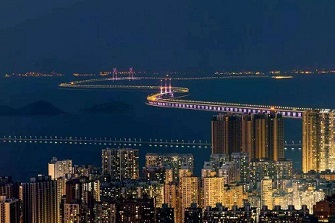
Liu Zhiqin: Hong Kong-Zhuhai-Macao Bridge—— A bridge towards common prosperity
The Hong Kong-Zhuhai-Macao Bridge is a very spectacular mega project. I can't help but marvel at the ingenuity and incredible fortitude of Chinese tech experts and the engineering construction teams who have created the world miracle. The completion of the Bridge is of great significance to the construction and economic development of the Greater Bay Area, as demonstrated in the following three aspects. The bridge has greatly enhanced the connectivity between Hong Kong, Zhuhai and Macao, underpinning the development of the Greater Bay Area.
2019-10-25 -
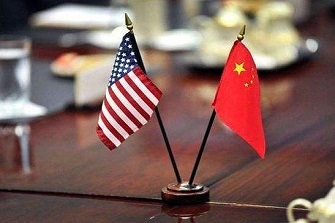
Wang Wen& Liu Ying: Ten areas where China and US need to focus
Substantial progress has been made in the latest round of China-US trade consultations on October 11. The volatile trade dispute which has taken global economic circles by storm over the past year and a half hasn't led to the collapse of the two countries' trading relationship in at least 10 fields. Cooperation in ties hasn't evaporated but rather seems to be strengthening. Enhancing cooperation in these 10 areas will not only be a key to stabilize ties but also an effective way to reverse global pessimism.
2019-10-25 -
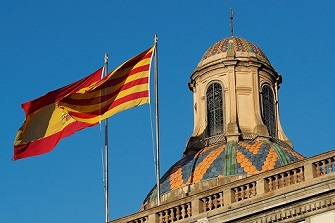
Expanding violence shows dangers of copying HK
Chile witnessed the worst unrest in decades over the weekend where people protested against the high cost of living. The Chilean government responded by declaring a state of emergency and imposing a night curfew. In Santiago, hundreds of troops were deployed on the streets as protesters erected barricades and set buses on fire. Police used tear gas and water cannons to disperse them. More than 300 people were arrested, and 156 police injured, as were 11 civilians, BBC reported. Three people were killed in fire on Sunday in a ransacked supermarket of Santiago during the riot, AFP reported.
2019-10-24 -
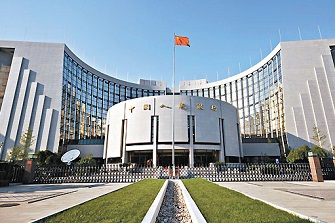
Unchanged LPR indicates PBC’s prudent monetary policy
The loan prime rate (LPR) for one- and five-year terms in October has remained unchanged from the previous month, according to the People's Bank of China (PBC) on Monday, and analysts said the situation indicates prudent monetary policy. For one-year maturities, the LPR was unchanged from last month's 4.2 percent, and the five-year prime rate stayed flat at 4.85 percent, according to the National Interbank Funding Center, a unit of the central bank, on Monday.
2019-10-24 -
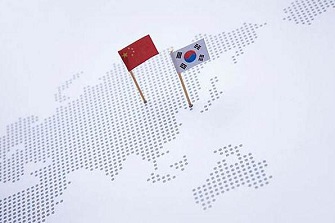
Ding Gang: What affects everlasting peace in East Asia?
I attended the 7th China-ROK Public Diplomacy Forum held from October 16 to 18 in Incheon, South Korea. The theme of the first session focused on peace and cooperation in Northeast Asia. During the tea break, a member of the South Korean audience walked up to me and asked very inquisitively: "Can you [China] defeat the US?" What he was referring to is the trade war. I replied that first it is not an issue about victory or defeat. Second, China is not trying to defeat the US, which is not capable of vanquishing China.
2019-10-24 -
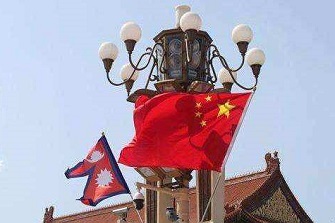
China, Nepal upgrade ties
The two sides should build an all-round cooperation pattern, carry out the construction of a trans-Himalayan connectivity network, and expand exchanges and cooperation in various fields, Xi said. The new relationship, featuring development and prosperity and dubbed a 'trans-Himalaya' friendship, shows that Nepal has realized that China is a significant partner that could help it realize its development prospects, especially economic development.
2019-10-23 -
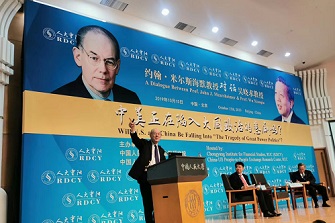
Can tragedy of great power politics be avoided?
At "A dialogue between Prof. John J. Mearsheimer and Prof. Wu Xiaoqiu: Will the US and China be falling into 'the tragedy of great power politics?'" organized by Chongyang Institute for Financial Studies, Renmin University of China, on October 15, Mearsheimer and Wu exchanged insights on China's rise, China-US relations with the audience.
2019-10-23 -
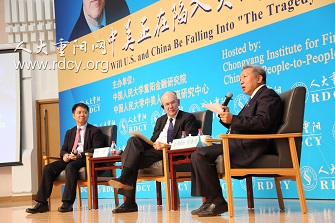
Wang Wen: Finance trumps military power in global politics
We think tank scholars often summarize the lessons of the US decline. A major lesson is that the successful great power of the 21st century must rely not on squeezing others but on its own governance. If in the future, China gets an upper hand on the US in infrastructure, 5G, social security, quality of life, technological innovation and education, Beijing will emerge the obvious winner. But this can't be achieved by tragedies precipitated by military or other conflicts. Hence we need to avoid conflict with the US.
2019-10-22 -
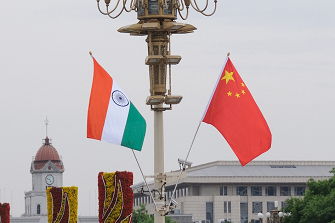
Grudges behind India's academic restrictions against China
India's new restrictions on academic exchanges with China immediately triggered widespread speculation. Highly vigilant of China's rapid rise, the Indian government has been known for its strict scrutiny of collaborative programs involving Beijing. But still, the new regulations – all Indian educational institutes need a nod from the Ministries of Home and External Affairs before seeking tie-ups with Chinese counterparts – is jaw-dropping for the academic circle.
2019-10-22
























































































 京公网安备 11010802037854号
京公网安备 11010802037854号





